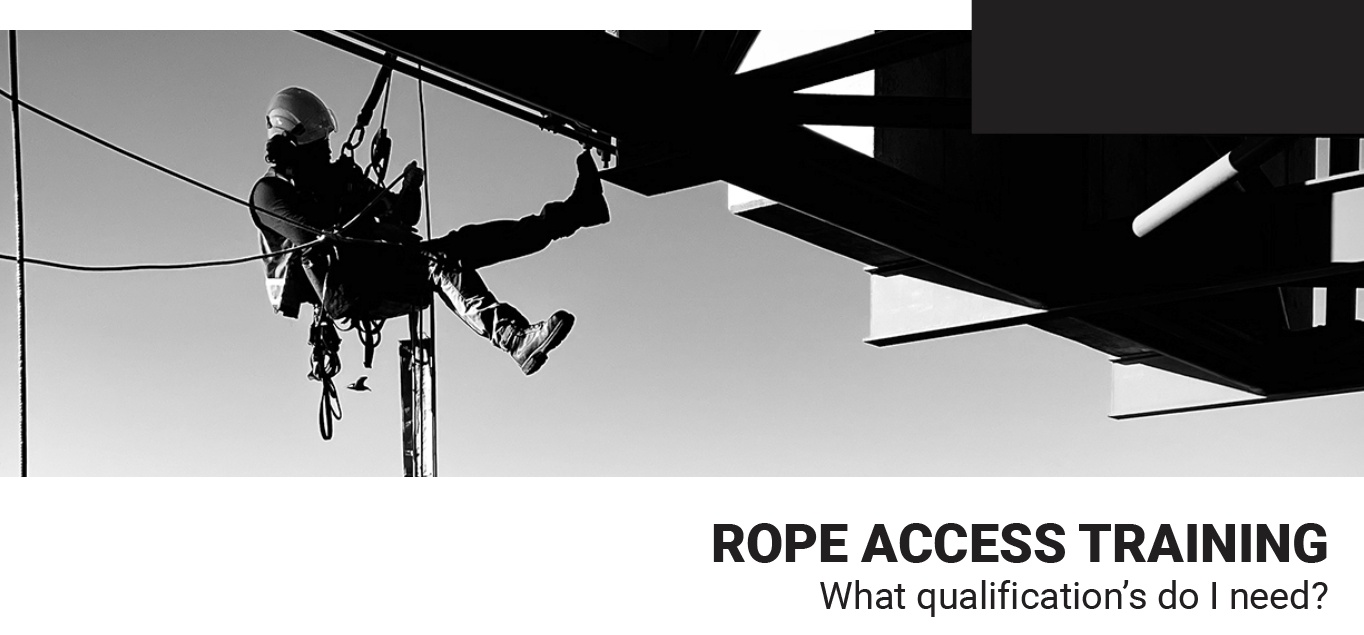Rope Access Training – What qualifications do I need?
Navigating the world of rope access requires a unique blend of skills, mindset, and qualifications. It’s not just about having a head for heights or the physical ability to manoeuvre in challenging environments; it’s about possessing a comprehensive skill set that ensures safety, efficiency, and excellence in every operation.
First and foremost, a solid foundation in rope access techniques is non-negotiable. This usually means (depending on your location) certification through a recognised body, such as the Industrial Rope Access Trade Association (IRATA) or the Society of Professional Rope Access Technicians (SPRAT). These certifications are not mere formalities but your passport to a world where precision and safety are paramount. They validate your ability to perform, ensuring that you can protect yourself and those who rely on the integrity of your work.
Rope Access has the following structure in certifications and requirements;
Level 1 (L1) – Starting in Rope Access
IRATA & SPRAT – There aren’t any major prerequisites for this other than being 18+ years of age, having a head for heights, being physically fit enough to perform all manoeuvres, and passing the written test.
Level1 (L1) upgrading to Level 2 (L2)
IRATA requires the technician to have held their L1 status for a minimum of 12 months+ and accumulated 1000+ logged hours (preferably signed off by a certified L3 supervisor in your logbook) to be able to upgrade to L2. Once these prerequisites have been met, you are able to proceed with the training & assessment, including a written test.
SPRAT requires the technician to have held their L1 status for a minimum of 6 months and accumulated 500+ logged hours (preferably signed off by a certified L3 supervisor in your logbook) to be able to upgrade to L2. Once these prerequisites have been met, you are able to proceed with the training & evaluation, including a written test.
Level 2 (L2) upgrading to Level 3 (L3)
IRATA, the requirements for upgrading are the same here as in L1 – L2. 12 months+ of L2 status and 1000+ logged hours (preferably signed off by a certified L3 supervisor in your logbook), with the additional requirement of obtaining a minimum of First Aid Level 1 training (OFA1 in western Canada). Once these prerequisites have been met you are able to proceed with the training & assessment including written test.
SPRAT, the requirements for upgrading are the same here as in L1 – L2. 6 months+ of L2 status and 500+ logged hours (preferably signed off by a certified L3 supervisor in your logbook), with the additional requirement of obtaining a minimum of First Aid Level 1 training (OFA1 in western Canada). Once these prerequisites have been met, you are able to proceed with the training & evaluation, including the written test.
Side Note: After obtaining L3 status, this does not imply you should be an ‘L3 Supervisor’. Gaining more experience and knowledge is vital, as well as being trained by your company to supervise others, efficiently run a team, and deal with clients on a day-to-day basis. Shadowing a current L3 Supervisor is a great idea.
Beyond technical prowess, rope access technicians must have a keen eye for detail and a proactive approach to risk management. It’s about seeing the unseen, anticipating challenges before they arise, and being versatile enough to adapt to the unexpected. This requires training in emergency response, rescue techniques, and first aid, equipping you with the skills to safeguard your well-being and that of your team and the assets you’re entrusted with.
Moreover, specialisation in a specific field can elevate your value significantly. Whether it’s inspections (NDT is a big one, but it requires a large investment financially and timewise), installations (Welder, Carpenter, and Electrician qualifications can be huge here), maintenance, or repairs, having niche expertise means you can offer solutions that go beyond access, addressing the nuanced needs of projects with precision and insight.
At its core, rope access is as much about mindset as technical skill. It requires a blend of courage, calmness under pressure, and a relentless commitment to excellence. The qualifications you need open the door to this world, but it’s your dedication to continuous learning and improvement that will define your success within it.

